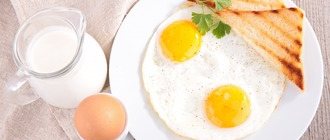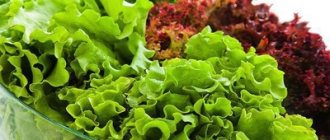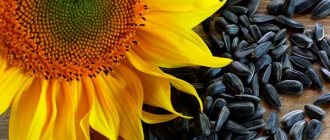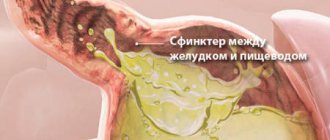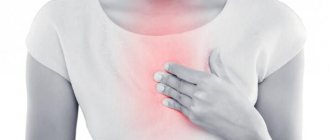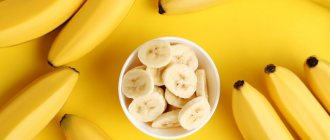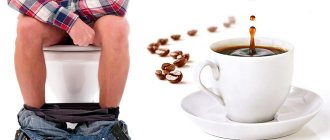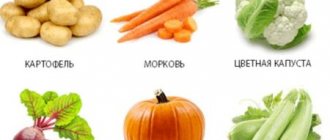What can adults eat if they have food poisoning?
Foodborne illnesses are infectious or irritating diseases of the gastrointestinal (GI) tract caused by foods or beverages containing harmful bacteria, parasites, viruses or substances.
The gastrointestinal tract is a series of hollow organs connected to form a long, winding tube that extends from the mouth to the anus.
The main symptoms of these diseases include vomiting, diarrhea (diarrhea), stomach pain, fever and chills.
Most food poisoning is acute. This means they come on suddenly, don't last long, and go away in most people without any treatment.
Less commonly, such diseases can cause more serious complications. Every year in the United States alone, 48 million people contract foodborne illnesses, 3,000 of which are fatal each year.
The following steps can help reduce the symptoms of foodborne illness and prevent the development of dehydration:
- drinking plenty of fluids, such as fruit juices, broths, sports drinks, non-alcoholic and caffeine-free drinks to replenish fluids and electrolytes;
- sipping small sips of clean water or sucking on pieces of ice if vomiting;
- gradually introducing foods, starting with light, easy-to-digest foods such as rice, potatoes, toast or bread, cereal, lean meats, applesauce, and bananas;
- avoiding fatty, sweet, dairy products, coffee and alcohol until complete recovery.
Infants and children should be of particular concern as they are prone to more rapid dehydration with diarrhea and vomiting due to their small body surface area.
It is also mandatory to use oral rehydration solutions such as Naturalyte, Pedialyte and Ceralyte to prevent dehydration.
www.niddk.nih.gov
SYMPTOMS OF POISONING
Poisonings are classified into two main types: infectious and non-infectious origin. They differ in the nature of their origin, but they have similar symptoms:
- nausea and vomiting;
- loose stools;
- flatulence;
- increased body temperature;
- chills and fever;
- intense sweating;
- spasms and cutting pain in the abdominal area;
- weakness and malaise;
- impurities in the stool (mucus, blood, foam);
- change in the color of urine and feces;
- labored breathing;
- loss of consciousness;
- changes in blood pressure;
- increased heart rate and pulse;
- swollen lymph nodes;
- swelling;
- redness of the skin on the face, neck;
- rash and itchy skin;
- breathing problems;
- grayish-white coating on the tongue;
- dizziness;
- loss of consciousness.
How to eat when you have diarrhea
What can you eat if you have poisoning and diarrhea? In case of poisoning and diarrhea, it is necessary to eat light, simple food, especially in the first 24 hours.
There is no one best food or food group for diarrhea. However, adequate nutrition is necessary if loose stools are present. If you have no appetite, you can only take liquids for a while.
Cooking meat foods such as beef, chicken, turkey and pork is allowed. Hard-boiled eggs are also not prohibited. Choose low-fat milk, cheese or yogurt.
If your diarrhea is severe, you may need to avoid dairy products for several days.
Eat baked goods made from refined white flour. Pasta, white rice and grains such as wheat, oatmeal and cornflakes are all suitable.
You can also try white flour pancakes and waffles and cornbread. However, you should not add honey or syrup.
Don't forget the vegetables: carrots, mushrooms, beets, asparagus tips, crushed acorns and zucchini. They need to be peeled/pitted and cooked. Baked potatoes are also suitable.
Desserts and snacks to try include: fruit gelatin, cookies or sorbet.
Foods that most often cause poisoning
There are a dozen Russian foods that most often cause poisoning. Let's look at each of these products in order.
- Eggs. Often the bacterium that causes salmonellosis, salmonella, settles in eggs. When eating eggs that have not undergone proper heat treatment, salmonella enters the human body.
- Meat and fish. This includes a wide variety of meats: beef, lamb, pork, poultry, and so on. This category also includes fish. Meat also very often contains various kinds of bacteria, which, if not properly processed, remain in it.
- Dairy products. Surely, this category does not raise questions or contradictions for anyone.
- Meat products. This includes cutlets, sausage, ham and other dishes. The reasons are the same.
- Aspic. Jelly provides an excellent environment for the colonization and proliferation of bacteria.
- Salads. In our country, salads dressed with mayonnaise with potatoes, eggs, onions, and so on are very popular. These are the best conditions for the life of pathogenic bacteria, here there are nutritious carbohydrates - starch and the presence of oxygen and sugar.
- Confectionery with cream.
- Fruits and vegetables. This is especially true for root vegetables, which become contaminated with microorganisms carried by rodents.
- Seafood. This is the most dangerous group, as if prepared incorrectly they are a great danger.
- Rice. During cultivation, rice often becomes infected with the bacterium Echinocereus. In addition, the bacterium affects rice when dishes are left at room temperature for a long time. For this reason, when preparing sushi and rolls, rice is disinfected with vinegar. However, not all chefs follow this technique, and as a result, poisoning after eating sushi and rolls is quite common today.
What to avoid
As important as it is to know what you can eat when you have diarrhea, it is equally important to know what is prohibited. Certain foods can rush through your intestines, aggravating the digestion process and making diarrhea worse.
Avoid the following foods:
- Fat. This includes foods fried in oil and served with gravy.
- Milk, butter, ice cream and cheese. Even if your diarrhea is not caused by lactose intolerance, stay away from these foods during acute attacks. You may be temporarily sensitive to them even though you usually tolerate them well. An exception may be yogurt, due to its high content of probiotics (good bacteria).
- Alcohol and caffeine. If you have diarrhea, it is better to avoid foods that cause fluid loss. These two substances have a diuretic effect, which means they lead to dehydration.
- Sorbitol and other artificial sweeteners. For many people, artificial sweeteners act like laxatives. During diarrhea, it is better to avoid sugar-free sweets, diet drinks, and sweeteners.
- Products that increase gas formation. It is necessary to eat a lot of vegetables and fruits daily, but if you have an intestinal disorder, it is recommended to avoid foods that increase the formation of gas, such as cauliflower, beans, broccoli, etc.
- Spoiled. Stay away from anything that has not been stored properly, including food that has been out of the refrigerator for a long time. Raw fish and meat are especially common problems. If in doubt, it’s better to throw it away so as not to experience intestinal upset again.
To maintain water balance, it is necessary to consume a sufficient amount of fluid, which is indicated by the abundance of clean urine. If there is little urine and it is not light, then you are not drinking enough.
www.medlineplus.gov
www.uptodate.com
Approved and restorative products
Acute food poisoning entails a lot of consequences, so adherence to a strict diet and special diet during the period of treatment and recovery is simply necessary. But despite many contraindications, there are foods that patients eat specifically to restore stomach function and suppress gag reflexes and diarrhea.
The list of such products is not long, but their intake is necessary to normalize health:
- Boiled or baked vegetables and fruits;
- Porridge on the water. Rice is especially useful;
- Rye crackers without flavoring additives;
- Herbal decoctions;
- Fillet of non-oily fish, steamed;
- Boiled ground meat or ready-made baby meat purees;
- Dry cookies or biscuits.
Blueberries will also help eliminate signs of diarrhea. But you should treat natural juices more carefully. A person suffering from gastric disorders is allowed to drink apple, banana, pomegranate and carrot juice. You should completely avoid orange or grapefruit because they contain acids that can harm an already irritated stomach.
Diet for intestinal poisoning
Eat light foods. If you feel like you have an appetite, try dishes that are gentle on your stomach and intestines. Stick to light, low-fat, low-fiber foods.
The stomach has a hard time digesting fats, especially if it is upset. Avoid fatty foods to further upset him.
What products are allowed:
- bananas;
- cereals;
- egg whites;
- jelly;
- oatmeal;
- peanut butter;
- potatoes, including mashed potatoes;
- rice;
- crackers;
- toast;
- applesauce.
The BRAT (Bananas, Rice, Applesauce, Toast) Food Poisoning Diet is a great guide.
www.healthline.com
First aid for diarrhea
Regardless of whether you had to treat an intestinal disorder without fever, or the patient also has this symptom, first aid is always the same. It consists of several stages:
- Stomach cleansing.
- Restoring water balance.
- Purgation.
- Diet.
Although medications for poisoning can significantly improve a person’s well-being, proper assistance to the body will promote a speedy recovery and help avoid the development of complications.
How to cleanse your stomach?
The human body is a unique structure. It is capable of cleaning itself when some low-quality product enters the digestive tract. When a person eats something inappropriate, nausea usually sets in. But this may not be enough to fully cleanse the stomach.
Although the body gets rid of a significant amount of toxic substances with the first vomiting, this does not provide complete relief. Therefore, a person should immediately try to drink up to half a liter of clean, warm water. You can add a granule of potassium permanganate or soda to it on the tip of a knife. Abrupt consumption of such a volume of liquid will provoke repeated vomiting, which will help the body get rid of toxic compounds remaining in the stomach.
Although a single gastric lavage has a positive effect, it is advisable to repeat this manipulation several times. You should continue until clean water comes out of the stomach. If the urge to vomit has stopped, the procedure should also be stopped.
How to restore fluid volume in the body?
The greatest danger to human life with intestinal disorders of any etiology is dehydration. Water leaves the body along with toxic compounds. It is important to replenish its volume correctly.
To maintain a normal balance, experts recommend drinking small sips of water after each attack of diarrhea or vomiting. For rehydration we recommend:
- saline solutions;
- glucose-salt compositions;
- boiled water;
- mineral water.
Milk, sweet drinks, tea or coffee are not suitable for these purposes.
How to cleanse the intestines?
In addition to cleansing the intestines naturally, special preparations are taken - sorbents. In addition, it is important to stop using medications that stop diarrhea. It is important to understand that diarrhea is a natural protective reaction of the body to the penetration of pathogenic microorganisms or toxic substances. If you stop diarrhea immediately, harmful compounds will remain inside the body, which will continue to poison the person, and the treatment will take longer and more difficult.
We recommend: How to quickly get rid of diarrhea at home?
The table below describes the main sorbent drugs that are taken for food poisoning.
| A drug | Features of application |
| Activated carbon | The medicine is taken at the rate of 1 tablet per 10 kg of weight. The drug is not suitable for people suffering from peptic ulcers. Can be taken only after cleansing the stomach. After the first dose, use of the medicine can be continued every few hours, 2-3 tablets. The drug removes toxins and normalizes intestinal motility. |
| Smecta | Effective sorbent. Available in powder form. The composition is diluted in warm clean water and drunk. The drug coats the intestinal walls, helping to relieve irritation. Diarrhea gradually weakens and pain decreases. It is not advisable to use at temperatures. |
| Atoxyl | The drug binds toxic compounds and carefully removes them out. It is effective not only for diarrhea, but also for nausea and vomiting. Medical practice proves that in 90% of cases, 15–20 minutes after using the medicine, nausea and vomiting disappear, and the frequency of bowel movements decreases. Repeated use of the product is most often not required. Can be used even at high temperatures. |
| Enterosgel | Perfectly coats the walls of the stomach and intestines, relieves irritation, and restores digestive processes. Available in the form of a suspension. Do not use for intestinal atony. |
Now it is much clearer what to do if a person is poisoned. Treatment will be more effective if you strictly adhere to the diet.
Therapeutic diet
If we are not talking about treating a small child, you can arrange a day of fasting. What do they eat during this period? Pure drinking water, herbal teas and infusions are acceptable. In the first hours of acute diarrhea, it is better to avoid other foods.
What to eat after the acute phase has passed? You can gradually introduce lactic acid products, low-fat cottage cheese and kefir. Banana is allowed as a fruit. You can prepare low-fat broth and crackers. We also recommend that you read: what can you eat if you have diarrhea?
If you eat right during diarrhea, the symptoms of the disease will quickly subside. You can use drugs like Loperamide or Levomycetin only as a last resort, and then only after consulting a doctor.
Normalizing water balance - what to drink
What can you drink if you are poisoned? Diarrhea can cause dehydration. Therefore, it is necessary to drink at least 2-3 liters of water daily. Ideally, you should drink 300 ml every half hour.
Oral rehydration solutions are a cheap, simple, and effective treatment for dehydration caused by diarrhea.
When it appears, the necessary fluids and elements that have left the body must be quickly restored.
Solutions such as Pedialyte, Gastrolyte and other similar solutions containing the required amount of glucose, potassium and sodium are available for sale.
They are used in patients who can take them orally. Otherwise, intravenous administration of other similar agents is used.
Very useful is weak tea, which has healing properties. This effect is achieved due to tannins, which are found in large quantities in tea. You can drink cocoa with water, fruit and berry compotes and juices.
The best is apple juice. Pineapple juices, tomato juices or citrus juices, can cause additional intestinal irritation. It is also possible to drink 50 ml of red wine per day.
Do not drink too carbonated or cold drinks. They have a detrimental effect on the intestinal mucosa, causing the formation of large amounts of gas. It is worth temporarily giving up beer, lemonade and kvass.
A rehydration solution can be prepared at home. Mix 6 teaspoons of sugar, half a teaspoon of salt and a liter of clean boiled drinking water.
Pour into 5 glasses of 200 ml each. Take it very seriously when determining the amount of substances. Too much sugar can make diarrhea worse.
Too much salt can be harmful. Unless excessive dilution of the solution (adding more than 1 liter of water) will not be too harmful.
www.doctorsis.com
www.cdc.gov www.rehydrate.org
Is it possible to eat when the first symptoms appear?
Healthy people have many different bacteria living in their intestines. Many of them are harmless or even beneficial to the body, but there are also those that can cause serious trouble.
Under normal conditions, "bad" bacteria are outnumbered, being kept in check by the balance of intestinal flora. However, this can change dramatically when an adult begins treatment with antibiotics.
If you take an antibiotic, it can affect your gut bacteria population and lead to loose bowel movements and diarrhea for a few days.
In case of mild diarrhea, follow the following diet:
- Drink plenty of fluids to replenish the water that has left your body with diarrhea. You can try plain water, sports drinks, or rehydration solutions.
- Temporarily avoid dairy products and those containing wheat flour (bread, pasta, pizza) as your digestive system may be overly sensitive to them for a few days. Also avoid foods rich in fiber such as fruits, corn and bran.
- Using antidiarrheal medications without a doctor's prescription is not recommended as they may prevent your intestines from getting rid of bad bugs and toxins.
If you have severe diarrhea caused by C. difficile infection, diet alone will not be enough. Your doctor will most likely stop your antibiotic treatment and prescribe an antimicrobial drug, metronidazole.
www.health.harvard.edu
Incompatible foods that cause vomiting
In practice, experts have identified a number of products that can stimulate signs of food poisoning, including vomiting and diarrhea:
- Caffeinated and alcoholic drinks can only worsen dehydration.
- Spicy and fatty foods that a weakened body is not able to digest, which can result in further attacks of vomiting and diarrhea.
- Foods that contain a high concentration of fiber, for example, citrus fruits, legumes, cereals, nuts, which lead to overload of the digestive system.
- Apple and pear juices should not be consumed if a person is sensitive to natural sweeteners, as this can worsen diarrhea.
- First of all, you should pay attention and exclude products that contain lactose, since it is this element that the body is not able to digest at the time of an eating disorder. Therefore, all dairy products can only increase diarrhea and vomiting.
In addition to the above, it is recommended to avoid canned food, smoked products and sausages, pastries, eggs, seafood and fast food.

